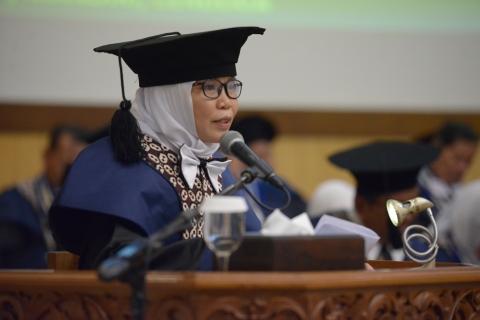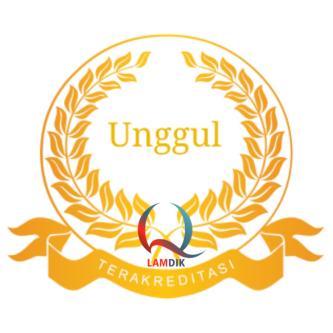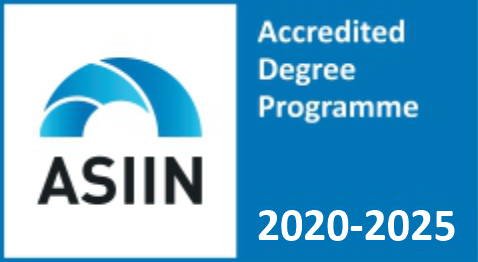You are here
Inauguration of Professor of Mathematics Education Evaluation Science
Primary tabs

The development of technology has an impact on industrial development, which in turn affects all aspects of people's lives. The existence of this industrial revolution certainly has an impact on changes in the world community. The Industrial Revolution 4.0 proposed by Germany in 2011 through digital transformation, Internet of Things (IoT), and blockchain has resulted in the growth of a new society system. This society utilizes artificial intelligence (AI) and IoT-based intelligent systems to improve life through Society 5.0. The main issue of Society 5.0 is the utilization of data presented by the use of technologies such as IoT, Big data, and AI using the principles of inclusion, sustainability, human-centeredness, and innovation. This was said by Prof. Dr. Heri Retnawati, M.Pd. in her inaugural speech as Professor in the field of Mathematics Education Evaluation at the Faculty of Mathematics and Natural Sciences, Yogyakarta State University. The speech entitled 'Assessment of Mathematics Education in the Era of Society 5.0' was read in front of an open meeting of the Senate in the Main Session Room of UNY Rectorate, on Saturday (28/12). Heri Retnawati is the 149th professor of UNY.
The woman born in Gunungkidul, on January 3, 1973, said that in the era of Society 5.0, student competencies needed include creativity and problem-solving, critical thinking, communication, and collaboration as well as being able to overcome various difficulties, and being competitive. These competencies have a broader meaning than the realm of knowledge and skills. These competencies are used to meet the complex needs of life, by optimizing the use of various psychosocial resources, including attitudes, knowledge, and skills in a particular field. These competencies are categorized into analytic, interpersonal, action, information processing, and the ability to manage change. These competencies can be mastered through the educational process, including through mathematics education. Mathematics education that can achieve these competencies is mathematics education that is implemented based on certain standards. Mathematics education standards are needed because competencies will develop in a conducive learning environment and train knowledge, skills, and attitudes.
The Doctor of Educational Research and Evaluation at Yogyakarta State University explained that problem-solving is the main thing that becomes the task of students in learning mathematics, as well as the purpose of learning mathematics. Students are encouraged to reflect on their thinking during the problem-solving process so that they can apply and adjust the strategies developed to solve other problems and contexts. By problem-solving, students gain a way of thinking, a resilient and unyielding attitude, always curiosity, and a sense of confidence in new situations that students face, both during the learning process and outside the learning process.
The Wirokerten Banguntapan Bantul resident said that along with the development of society, mastery of 21st-century competencies is urgent. “In addition, mastery of competencies can be achieved through the implementation of learning by utilizing appropriate approaches, as well as conducting authentic assessment which is also an assessment for and of learning,” said Heri Retnawati. For this reason, various assessment techniques need to be applied, and reported in detail, so that they are useful for improving competency achievement, improving learning, and improving educational policies. Various challenges need to be faced, to prepare human resources who are ready to face the development and changes in society and have the competitiveness to be able to play an active role in the global world. (Dedy)
.
Lembaga
Copyright © 2026,







